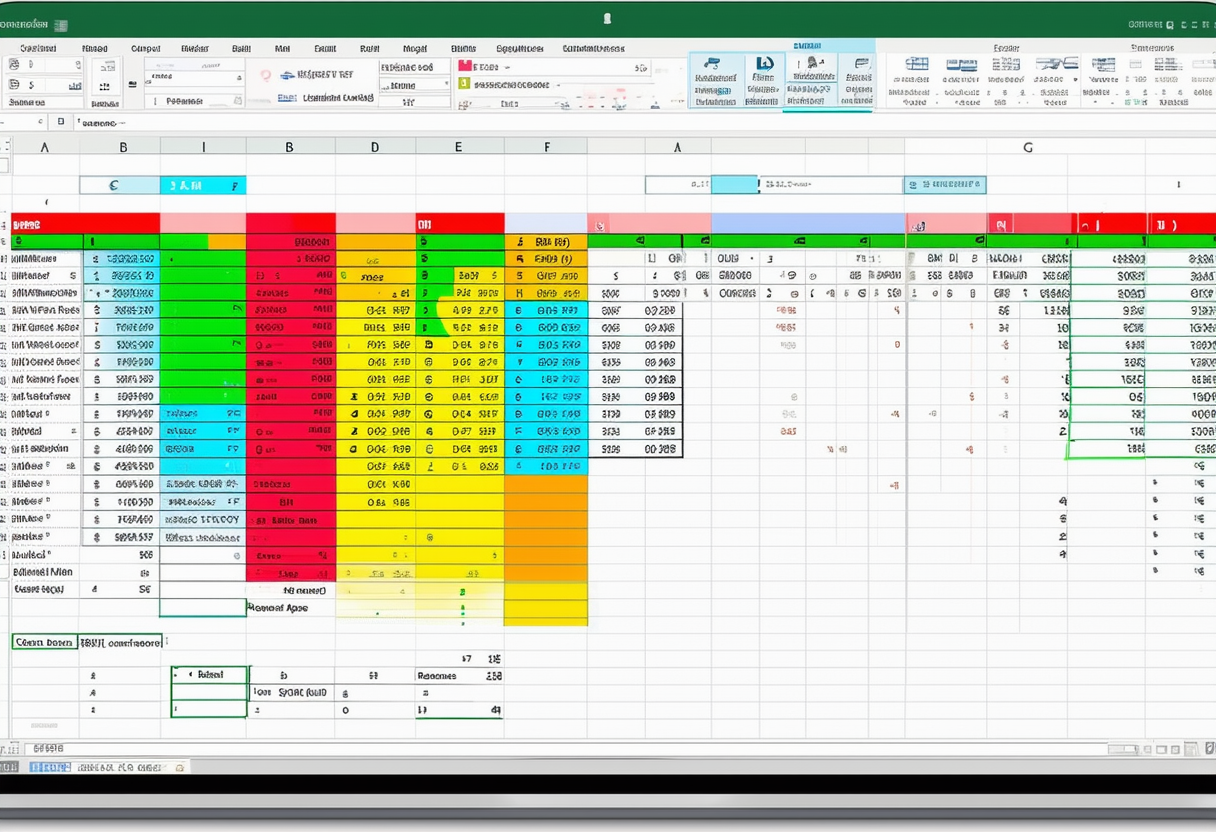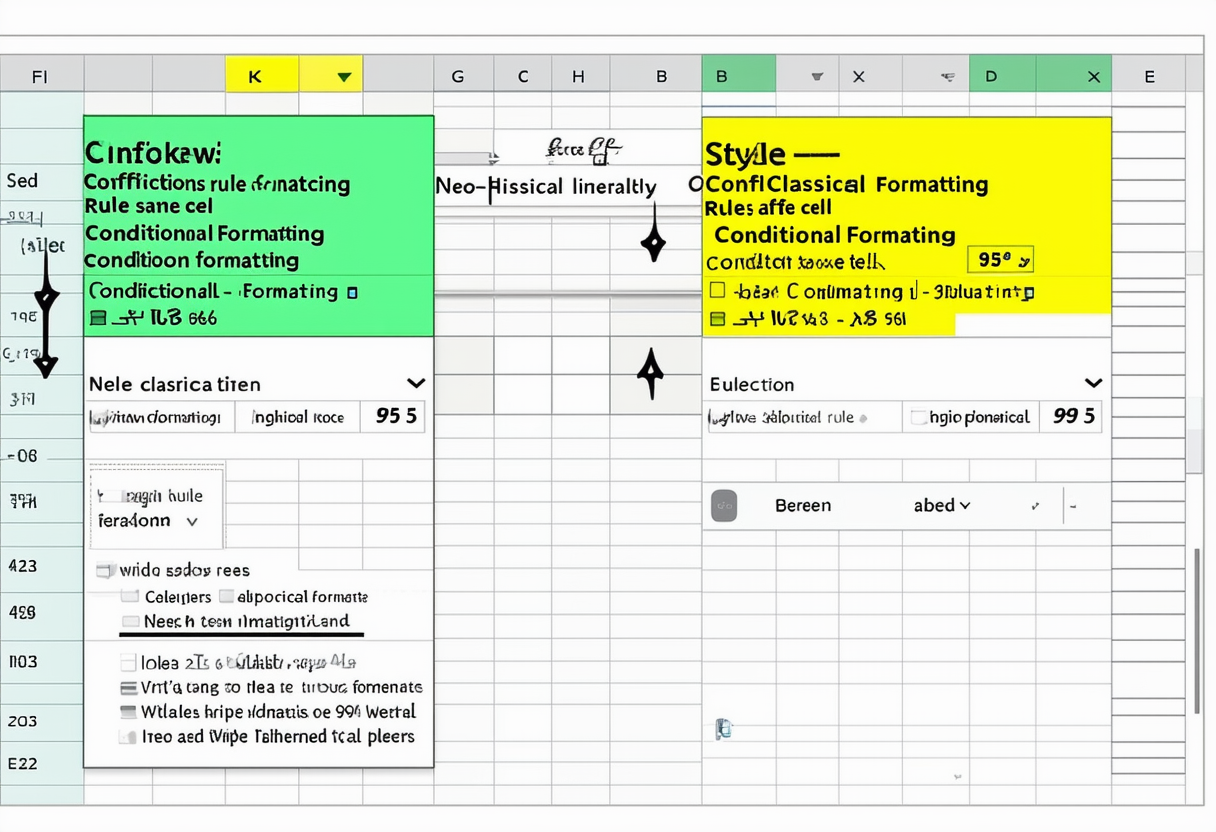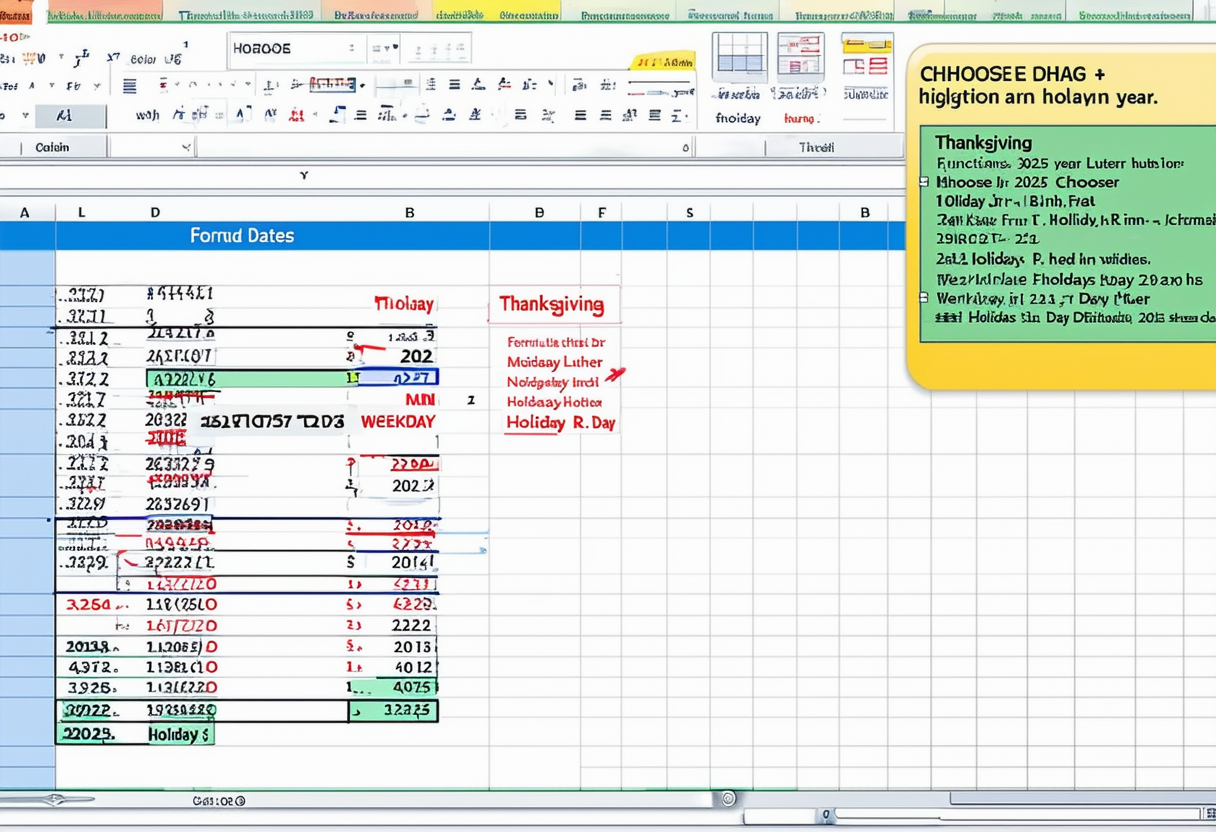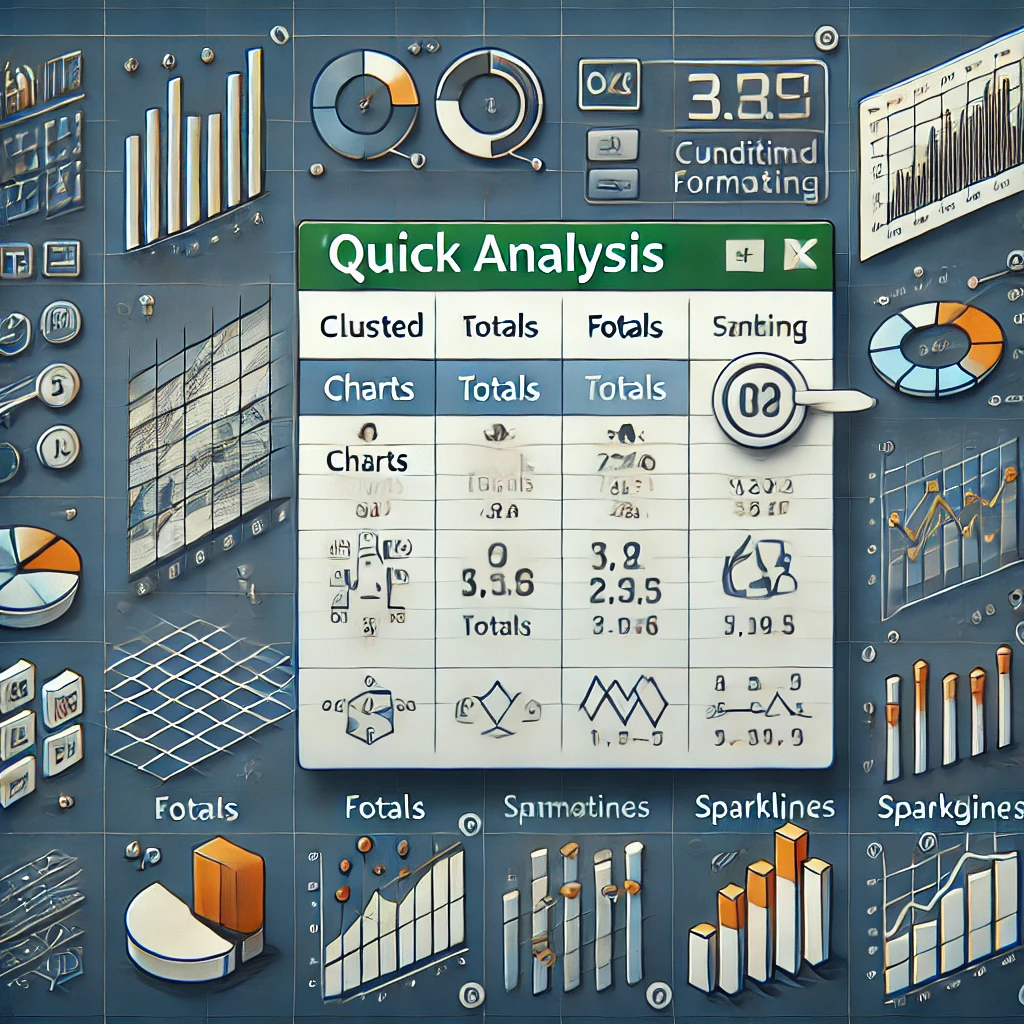Table of Contents
Spreadsheets are an essential tool for businesses and individuals alike, offering a versatile platform for data organization, analysis, and collaboration. While Google Sheets is a popular choice, there are several alternatives that provide unique features and functionalities to enhance your spreadsheet management experience. In this article, we will explore five top alternatives to Google Sheets that you should consider in 2024.
Microsoft Excel
Overview:
Microsoft Excel is a powerhouse when it comes to spreadsheet software. With its extensive range of features and capabilities, Excel is widely used by professionals across various industries. It offers a user-friendly interface, advanced formulas, data visualization tools, and seamless integration with other Microsoft Office applications.
Pros:
One of the key advantages of Microsoft Excel is its robust functionality. It allows users to perform complex calculations, create dynamic charts and graphs, and automate repetitive tasks using macros. Excel also offers powerful data analysis tools, such as pivot tables and conditional formatting, making it an ideal choice for data-driven decision-making.
Furthermore, Excel provides extensive customization options, allowing users to tailor their spreadsheets to meet specific requirements. It supports a wide range of file formats, making it easy to collaborate with colleagues or share data with clients.
Cons:
While Excel offers a plethora of features, its complexity can be overwhelming for beginners. The learning curve can be steep, especially for individuals who are new to spreadsheet software. Additionally, Excel is a desktop-based application, which means it requires installation and may not be as accessible as cloud-based alternatives.
Who It’s For:
Microsoft Excel is ideal for professionals who require advanced spreadsheet functionalities and are familiar with the Microsoft Office suite. It is particularly well-suited for data analysts, financial professionals, and project managers who need to handle large datasets and perform complex calculations.
Airtable
Overview:
Airtable is a modern and intuitive spreadsheet tool that combines the flexibility of a spreadsheet with the power of a database. It offers a visually appealing interface, customizable templates, and a range of collaboration features, making it a popular choice for teams and individuals.
Pros:
One of the standout features of Airtable is its flexibility. It allows users to create custom databases within a spreadsheet-like interface, making it easy to organize and manage data. Airtable also offers a wide range of pre-built templates for various use cases, such as project management, content planning, and event tracking.
Furthermore, Airtable excels in collaboration. It allows real-time collaboration, enabling team members to work together seamlessly. Users can assign tasks, leave comments, and track changes, enhancing productivity and streamlining workflows.
Cons:
While Airtable offers a unique approach to spreadsheet management, it may not be suitable for complex data analysis tasks. Its capabilities are more focused on data organization and collaboration rather than advanced calculations and statistical analysis.
Additionally, Airtable’s free plan has limitations on the number of records and attachments, which may not be sufficient for larger teams or projects. To unlock advanced features and increased storage, users will need to upgrade to a paid plan.
Who It’s For:
Airtable is ideal for teams and individuals who prioritize collaboration and data organization. It is particularly well-suited for project managers, content creators, and small businesses that require a flexible and visually appealing spreadsheet tool.
Zoho Sheet
Overview:
Zoho Sheet is a cloud-based spreadsheet software that offers a comprehensive set of features for efficient data management. It provides a familiar interface, advanced formulas, and seamless integration with other Zoho applications, making it a compelling alternative to Google Sheets.
Pros:
Zoho Sheet offers a user-friendly interface that closely resembles traditional spreadsheet software, making it easy for users to transition from other platforms. It provides a wide range of formulas, functions, and formatting options, allowing users to perform complex calculations and create visually appealing spreadsheets.
Furthermore, Zoho Sheet integrates seamlessly with other Zoho applications, such as Zoho CRM and Zoho Projects, enabling users to streamline their workflows and centralize their data. It also offers robust collaboration features, including real-time editing, comments, and version history.
Cons:
While Zoho Sheet offers a solid set of features, it may not have the same level of advanced functionality as Microsoft Excel. Users who require complex data analysis or extensive customization options may find Zoho Sheet lacking in certain areas.
Additionally, Zoho Sheet’s free plan has limitations on the number of users and storage, which may not be suitable for larger teams or organizations. To access advanced features and increased capacity, users will need to upgrade to a paid plan.
Who It’s For:
Zoho Sheet is well-suited for individuals and small to medium-sized businesses that require a user-friendly and feature-rich spreadsheet software. It is particularly beneficial for users who already utilize other Zoho applications and seek seamless integration and centralized data management.
Smartsheet
Overview:
Smartsheet is a powerful project management and collaboration tool that incorporates spreadsheet functionalities. It offers a range of features, including task management, Gantt charts, and resource allocation, making it an excellent choice for teams and organizations.
Pros:
One of the key advantages of Smartsheet is its project management capabilities. It allows users to create and manage tasks, set dependencies, and track progress using Gantt charts. Smartsheet also offers resource allocation features, enabling teams to optimize their workflows and allocate resources effectively.
Furthermore, Smartsheet provides robust collaboration features, including real-time updates, comments, and automated notifications. It integrates with popular communication and file-sharing tools, such as Slack and Google Drive, enhancing team collaboration and streamlining workflows.
Cons:
While Smartsheet excels in project management, its spreadsheet functionalities may not be as extensive as dedicated spreadsheet software like Microsoft Excel. Users who require advanced calculations or data analysis may find Smartsheet lacking in certain areas.
Additionally, Smartsheet’s pricing plans can be relatively expensive, especially for larger teams or organizations. The cost may be a limiting factor for small businesses or individuals who have budget constraints.
Who It’s For:
Smartsheet is ideal for teams and organizations that prioritize project management and collaboration. It is particularly well-suited for project managers, marketing teams, and construction companies that require a comprehensive tool to manage tasks, track progress, and optimize resource allocation.
Quip
Overview:
Quip is a collaborative productivity suite that combines documents, spreadsheets, and chat in one platform. It offers a seamless integration of communication and collaboration features, making it an excellent choice for teams and individuals who value real-time collaboration.
Pros:
One of the standout features of Quip is its real-time collaboration capabilities. It allows users to edit spreadsheets simultaneously, leave comments, and have discussions within the document. Quip also integrates with popular communication tools, such as Slack, enabling teams to collaborate seamlessly.
Furthermore, Quip offers a range of templates and formatting options, allowing users to create visually appealing spreadsheets. It also provides version history and revision tracking, ensuring that users can easily revert to previous versions or track changes made by collaborators.
Cons:
While Quip offers robust collaboration features, its spreadsheet functionalities may not be as advanced as dedicated spreadsheet software. Users who require complex calculations or extensive data analysis may find Quip lacking in certain areas.
Additionally, Quip’s free plan has limitations on the number of documents and storage, which may not be sufficient for larger teams or projects. To access advanced features and increased capacity, users will need to upgrade to a paid plan.
Who It’s For:
Quip is ideal for teams and individuals who prioritize real-time collaboration and seamless communication. It is particularly well-suited for remote teams, creative agencies, and startups that require a collaborative platform to work on spreadsheets, documents, and chat simultaneously.
In conclusion, while Google Sheets is a popular choice for spreadsheet management, there are several alternatives that offer unique features and functionalities. Whether you require advanced calculations, flexible databases, comprehensive project management, or seamless collaboration, these top five alternatives provide a range of options to enhance your spreadsheet management experience. Consider your specific needs and preferences to choose the alternative that best suits your requirements.









